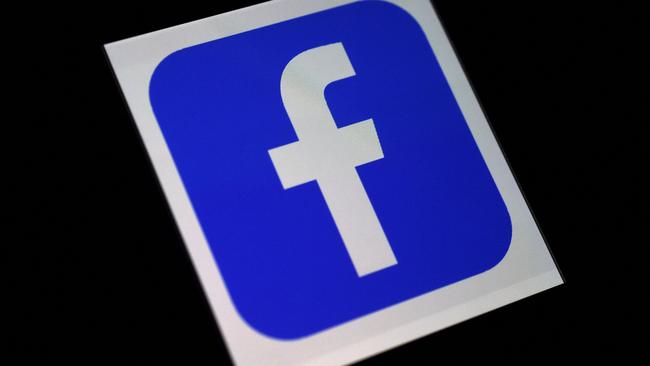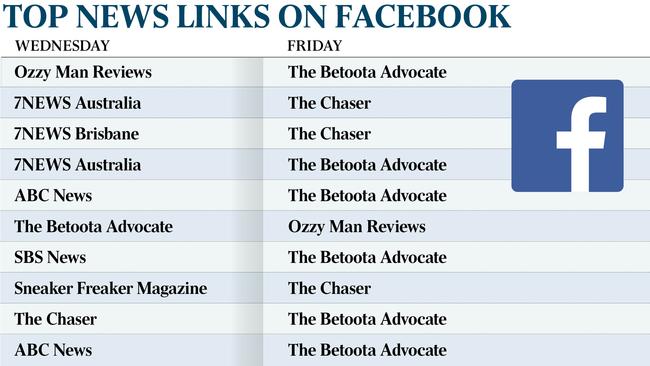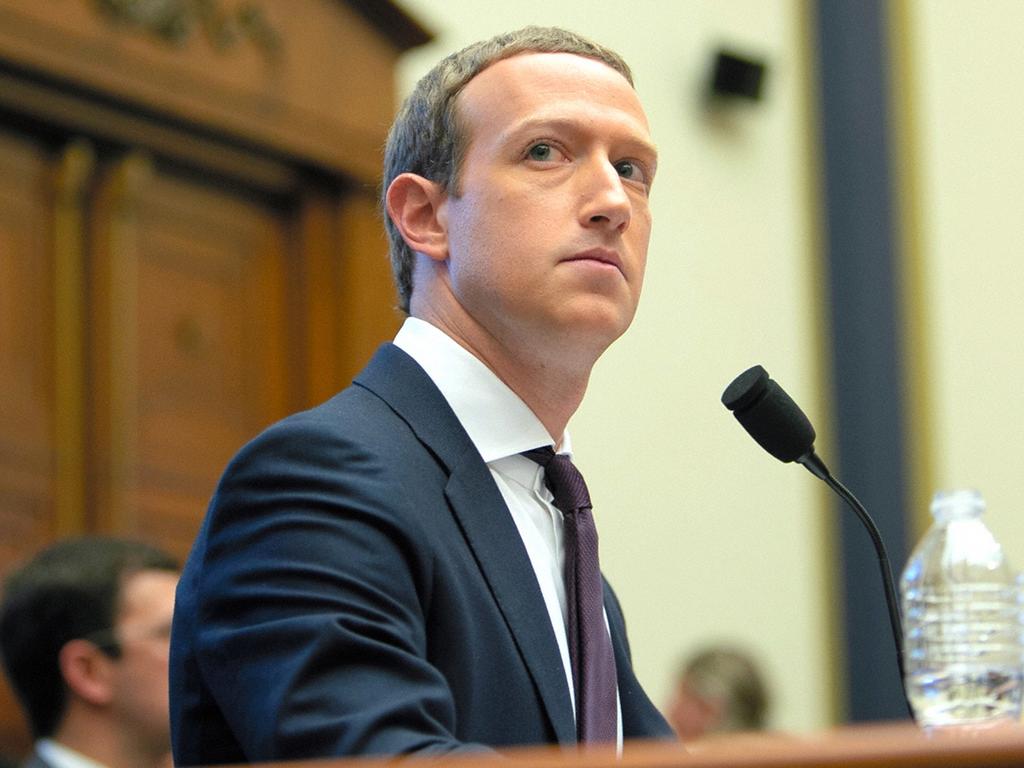No-news Facebook left with cat memes and conspiracy theories
Facebook is becoming a ‘misinformation nightmare’, with new data showing cat memes and conspiracy theories are replacing news.

Facebook is quickly becoming a “misinformation nightmare”, with new data showing cat memes, satire and conspiracy theories are replacing genuine news content.
Statistics seen by The Weekend Australian show that after Facebook’s blanket news ban on Thursday, nine of the top 10 most popular links shared were from satire websites The Chaser and The Betoota Advocate, which were both initially banned by Facebook but unblocked on appeal.
Rebel News Australia, backed by far-right figure Avi Yemeni, also crept into the top-links list in the 24 hours after the ban was put in place, as did Cats Love Catnip.
Journalism Education and Research Association of Australia president Alex Wake said on Friday that Facebook’s “extraordinary move” had made the platform defunct as a source of news. “It’s a misinformation nightmare … Facebook is now Fakebook,” Dr Wake said.
“It’s an extraordinary move from the US-based company which has repeatedly cited its need to respect the first amendment and support free speech and free flow of information.
“Free news is bad news. Hearing someone say ‘I read it on Facebook’ is now as credible as ‘I heard it from my aunt’s sister’s cousin who works in a government office’.
“There’s no point in coming to this site right now unless I want to be told that there are pedophiles in my suburbs or I want to bitch about council bins.”
In the 24 hours before Facebook blocked news sharing in Australia, the top 30 links measured by engagement were dominated by posts from verified news outlets including 7News and SBS, and by News Corp columnist Rita Panahi.
On Wednesday, top links shared included news stories “Starving and beaten girl, 3, rescued after worried neighbour forces her way into family home”, and “Players would rather cancel season than undergo more Australian Open-style quarantine: Djokovic.”

On Thursday, the top Facebook posts were “Channel 9 journo forced to hit streets to inform public about great savings at Harvey Norman” and “Jenny Tells PM To Look At Facebook Changes As If His Own Daughters Were independent Newspapers”.
Scott Morrison on Friday called on Facebook to return to negotiations over the media bargaining code. “I would just say to Facebook, this is Australia,” the Prime Minister said. “You want to do business, here you work according to our rules. And that’s a reasonable proposition.
“The idea of shutting down the sort of sites they did as some sort of threat — well, I know how Australians react to that. And I thought that was not a good move on their part.”
Josh Frydenberg had another call with Facebook founder Mark Zuckerberg on Friday morning, which lasted a little over 30 minutes.
“We talked through their remaining issues and agreed our respective teams would work through them immediately. We’ll talk again over the weekend,” the Treasurer said. “I reiterated Australia remains committed to implementing the code.”
Statistics from data and analytics provider Chartbeat found that Facebook’s news block had resulted in a direct hit to small news publishers’ traffic numbers.
“This drop has been seen most dramatically in traffic to Australian sites from readers outside of Australia, because that readership was so driven by Facebook,” a spokesman said. “Overall, this outside-Australia traffic has fallen day-over-day by over 20 per cent. We also see a large drop in traffic from readers within Australia. At 1pm eastern time on Wednesday (just before Facebook made the change), over 15 per cent of visits from within Australia were being driven by Facebook. Traffic steadily fell from there, and by 8pm less than 5 per cent of visits were being driven by Facebook.”
Overall, traffic to publishers from Facebook plummeted by 93 per cent.
Canada has condemned the social media giant and said it would press on with plans to force the company to pay for content.
Canadian Heritage Minister Steven Guilbeault said he was in contact with the Australian government and regulators, and that his government would consider copying Australia’s regulatory model.
“We are working to see which model would be the most appropriate,” he said.
An open letter — led by Chris Cooper, executive director of Reset Australia, a global initiative working to counter digital threats to democracy — condemned Facebook’s move and demanded it reverse its decision to block news. It gained support in and outside of Australia.
“Facebook blocking news in the middle of a pandemic, when accurate information is a key plank of the public health response, really tells you all you need know about how much Zuckerberg cares about Australian society and cohesion,” Mr Cooper said.







To join the conversation, please log in. Don't have an account? Register
Join the conversation, you are commenting as Logout